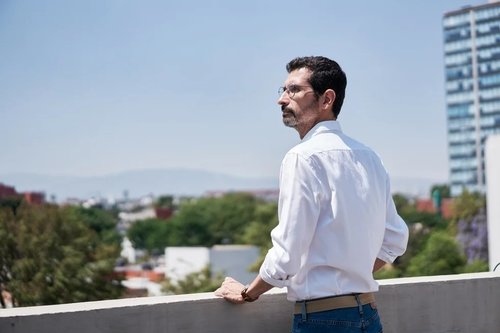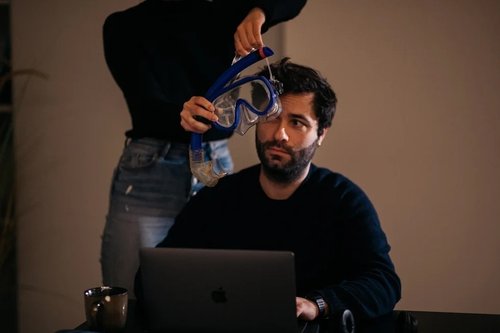Germany begins universal basic income trials
Aug 28, 2020
3 mins


Journalist
The coronavirus pandemic has hit economies across the globe where it hurts, with governments racking up debt left right, and center, and individuals having their livelihoods thrown into question. All in all, it’s laid bare the rampant inequalities that exist in society. Germany is going experimental in terms of patching up these disparities by giving universal basic income (UBI) a shot. UBI is the idea that governments should pay citizens a monthly stipend regardless of their employment status to improve professional and personal well-being.
Germany is starting a three-year study to observe the effects of universal basic income on the economy and the recipients. In the trial, conducted by the German Institute for Economic Research, 120 participants will receive a monthly payment of €1,200 (£1,080) that they are free to spend any way they wish. Their experiences will be compared to those of more than 1,300 others who won’t receive the payments.
Participants will report back on their lives, work, and emotional state to monitor the effect universal basic income has on them. If all goes well, researchers behind the project hope that by November, they can expand to 1,500 participants.
Jürgen Schupp, the researcher behind the study, claims that it will add to the body of evidence for or against UBI with concrete facts. “It is—on both sides—shaped by cliches: Opponents claim that with a basic income people would stop working in order to lie on the couch with fast food and streaming services. Proponents argue that people will continue to do fulfilling work, become more creative and charitable, and save democracy,” he told the German news magazine, Der Spiegel. “We can improve this if we replace these stereotypes with empirically proven knowledge and can therefore lead a more appropriate debate.”
So what exactly are these cliches? Critics claim that UBI won’t do much to help those in need, and could actually increase poverty. An OECD study showed that reallocating welfare payments from targeted ones, such as universal credit, to a more general one, would mean governments end up wasting valuable funds paying off people who don’t need the extra boost, when they could be giving more to the neediest.
Opponents also say it would lower productivity, with people no longer needing to work to support themselves. Some could even start to find work meaningless because it will no longer be their main source of income.
On the other hand, supporters say that it boosts mental and financial wellbeing. Rather than assuming that people will sit around watching Netflix all day, advocates claim that people would have the time to work on skills that may help them switch to industries to which they are more suited.
It is also said that without so much pressure to fulfill the requirements of a full-time job, the mental health of many overworked people would improve, which has the potential to translate into a more productive society.
Finland ran a similar study to Germany in 2017/18, when it gave 2,000 unemployed citizens monthly payments of €560 (£504) for two years. Researchers found that those on UBI reported increased financial well-being, mental health, and confidence in the future. Minna Ylikännö, who led the research team, claimed that it could be incremental in dealing with dire economic situations, such as the fallout of the Covid-19 pandemic.
Under the pressure of a post-lockdown economy, Germany isn’t the only country considering UBI. Spain, a country that underwent one of the most stringent lockdowns in the world, has brought in a guaranteed minimum income scheme to help poorer families navigate the economic downturn. But the Spanish scheme works more like universal credit in the UK, only benefitting low-income families.
Although there are no such plans in the UK, a recent YouGov poll found that the majority of the British public (51%) would back UBI to get the country through the coronavirus pandemic. While the furlough scheme did a lot to keep people’s heads above water through the depths of lockdown when it comes to an end in October, is UBI the next step?
Photo: Welcome to the Jungle
Follow Welcome to the Jungle on Facebook, LinkedIn, and Instagram, and subscribe to our newsletter to get our latest articles every day!

More inspiration: International

Germany trials the four-day workweek: “Free time is invaluable”
Germany's four-day workweek trial may be the solution to greater productivity, worker satisfaction, and work-life balance.
Jun 10, 2024

The Fuckup Nights movement: The art of sharing failures on stage
Discover the global movement fostering learning, community, and authenticity with Fuckup Nights co-founder Pepe Villatoro.
May 23, 2024

Why is Europe so eager to attract foreign workers?
Looking for work abroad? Now might be your chance. The European Union is facing labor shortages, prompting efforts to attract foreign workers.
May 22, 2024

What if working less isn't the answer?
For sociologist and researcher Julia Posca, "It's not just about working less, it’s mainly about working better."
Apr 10, 2024

Hangover leave? Pawternity PTO? Explore the world’s quirkiest paid leave initiatives
Need time off for your birthday, a breakup or simply a lack of motivation? In some countries, it's possible.
Apr 04, 2024
The newsletter that does the job
Want to keep up with the latest articles? Twice a week you can receive stories, jobs, and tips in your inbox.

Looking for your next job?
Over 200,000 people have found a job with Welcome to the Jungle.
Explore jobs